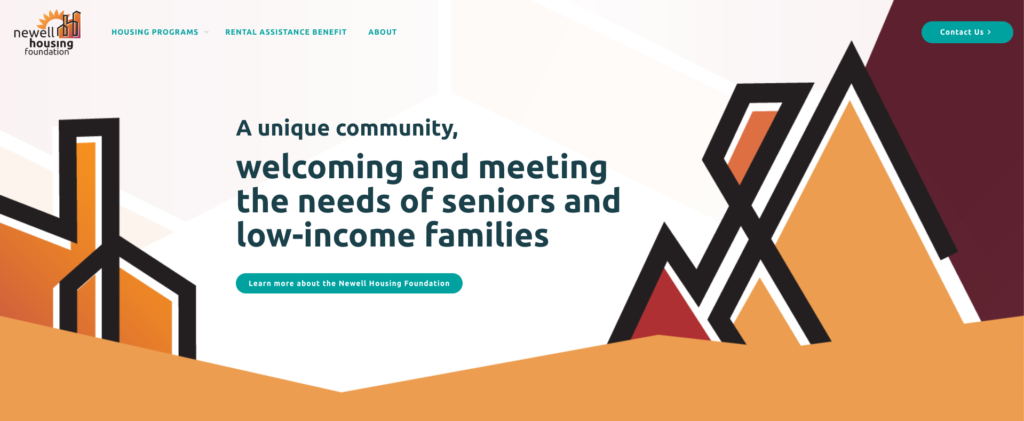Why isn’t my website showing up on Google?!
Let’s say you own a dog grooming business. You have a beautiful new website, lots of social media presence, and a free Google My Business Listing. Your goal is to rank high in Google when people search for “best dog groomer in medicine hat”… but yet your website is nowhere to be found when these keywords are searched. What’s going on?!
Chances are you have not optimized your website following Search Engine Optimization (SEO) best practices. You must lay the groundwork for your website to increase its visibility in search ranking organically.
Google’s list of SEO best practices is constantly changing and growing, which means there are many details that can affect your website’s organic ranking over time. Here is a concise list of some of the current most important areas that help improve your organic ranking:
Align your content with your search intent
Is your website informational, navigational, commercial, or transactional? Always keep the search intent in mind while creating content for your website. Content should, above all else, answer the user’s search query adequately. The most common kinds of search intents are:
- Informational – The user is looking for specific information. EG. “What is the weather today?”
- Navigational – The user is looking for a specific website or app. EG. “Facebook login”
- Commercial: The user is looking for a specific product, but hasn’t made a final decision yet. EG. “best skinny jeans”
- Transactional: The user has already made a decision with the intent is to purchase a specific product. EG. “buy Macbook Air”
Create Useful Content
Focus on the quality of your website’s content, not the quantity. Your website content should be:
- well-researched
- unique
- compelling and engaging
- valuable or useful
- match your users’ search intent or the purpose behind their inquiry.
Page Speed
If your site takes a long time to load, you are going to frustrate your website visitors, and your rankings may drop. Be sure you are monitoring your website’s performance and correct any issues that are preventing it from loading faster. These are some things you can do to improve your websites load time:
- Enable browser caching
- Image compression
- Delete unnecessary plugins
- Reduce server response time
- Reduce the number of redirects
- Minify CSS and JavaScript files
User Experience
How do web users interact with your website? Google tracks how users engage with your website in order to evaluate the user’s experience. Better user experience = higher organic search ranking.
- Are they leaving or navigating onto secondary pages?
- How long are they spending on the website?
- Is your website visually appealing?
- Easy to navigate?
- Legible?
- Are there annoying pop-ups?
- Does it work well on mobile devices?
Earn Authoritative Backlinks
Backlinks are inbound links or external links on your website. In other words, they are links on one website pointing to another website.
- Google recognizes backlinks as votes of confidence. If a high-quality website with an excellent reputation links to your site, that is a fantastic vote of confidence.
- Popularity is another consideration. Google sees external links as votes of popularity, boosting websites sites with lots of quality and credible backlinks.
- Keep in mind that Google trusts backlinks from trusted and credible websites over those that are spammy or lesser-known.
- Even better if the backlink is directly relevant to your industry. This indicates to Google that your website is likely an authority in your industry.
Title tags and meta descriptions
Title tags are the clickable headlines and meta description is the brief summary of a page that appears in search results. Both are critical to giving users quick insight into the content of a link and why it’s relevant to their query. Always remember to:
- Include your target keywords
- Write a title that matches search intent
- Avoid creating duplicate title tags
- Avoid keyword stuffing
- Keep it descriptive but concise
Optimized Images
Images play a crucial role in improving the user experience for people who visit your website. But not only are the images you choose to use on your website important, images can also contribute to your website’s overall SEO and organic traffic. Be sure you are implementing the following best practices:
- Use the best file format and compressed image sizes for optimal load time
- provide Alt text for all images. Improves web accessibility and helps browsers better understand the images on your site.
- Lazy load images. Images and videos are loaded as users need them, instead of all at once upon page load.
Website performance is something we monitor over time as part of our website management plan and is a big part of our initial website development process. However, please keep in mind that organic SEO is not an exact science – otherwise, everyone would be #1 on Google!
The only way to guarantee to rank for specific search terms is to run paid advertising through Google (Google Ad Words). With Google Ads words, you are able to set a budget to bid on ranking for specific search terms and then pay upon each click you receive. Contact us about setting up a Google AdWords campaign for your business or optimizing the organic SEO of your website.
Resources:


